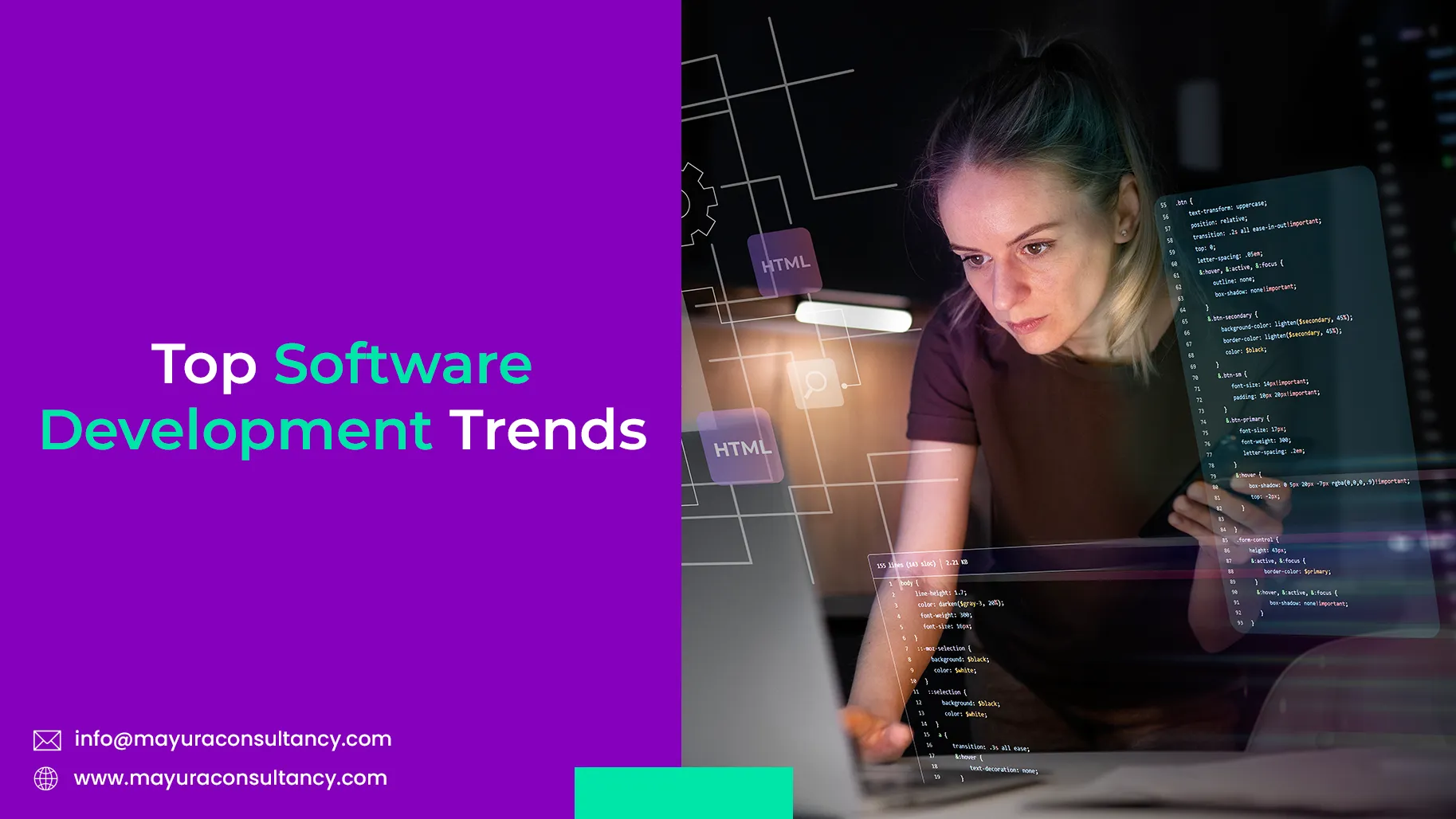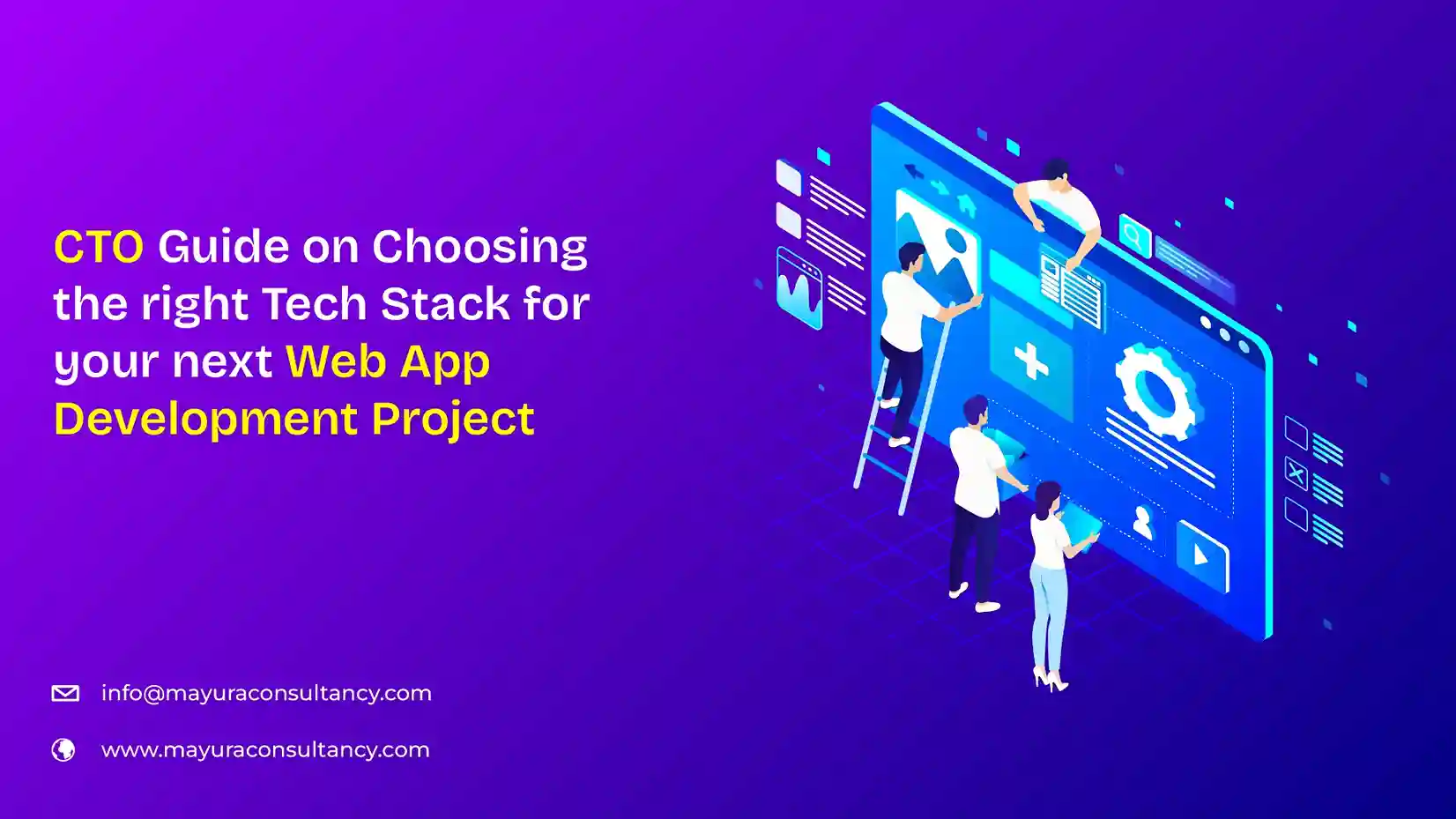DevOps has significantly transformed software development by bringing the development and operations teams together, resulting in higher efficiency and collaboration.
This model continues to be popular in 2026 as companies adopt it for enhanced collaboration, better software quality, and faster delivery.
With technological progress and changing business demands, many new DevOps trends have emerged recently. These trends are not only technical shifts but a transformative approach to how organizations develop and deploy software. Is your Business ready to implement this popular software development method?
Let's discover the Top DevOps Trends in 2026.
This Article Contains:
What is DevOps?
DevOps is a game-changing software development model that combines the development and operation teams that enable businesses to achieve greater agility, reduced time-to-market, and maintain a robust security posture.
More than a software development model, it is a cultural shift to share responsibility for the entire software lifecycle. DevOps encourages team members to collaborate closely with the cross-functional team and stakeholders to deliver high-quality software products on time. Due to this, DevOps will be in high demand in the future.
DevOps methodology is going to be more efficient, secure, and reliable in 2026. The latest DevOps innovations like Artificial Intelligence, DevSecOps, Edge Computing, and GitOps will streamline application development and management.
What are the Top DevOps Trends of 2026
The DevOps landscape continues to evolve in 2026, driven by new technologies and demand for high-quality software and faster delivery. Let's find out the DevOps new trends.
1. Adoption of Artificial Intelligence and Machine Learning
DevOps is one of the most popular software development methodologies that emerged in the last few years, and the trend will continue to dominate in 2026 and the coming years. On top of that, the integration of AI and ML (Machine Learning) into DevOps is transforming software development.
These technologies automate repetitive tasks, identify potential bottlenecks, and predict deployment risks, facilitating faster development. Due to AI & ML’s transformative impact on DevOps, they are considered the next big things in DevOps.
Imagine your team is leveraging an AI model that can analyze historical data to suggest improvements to your CI/CD pipeline that frees up valuable time for DevOps engineers to focus on higher-level tasks and strategic initiatives. Moreover, embracing these technologies not only streamlines the development process but enables your team to deliver high-quality software much faster.
2. Integration of DevOps with Serverless Architecture
The integration of DevOps and Serverless computing has emerged as one of the latest DevOps trends in the last few years. The DevOps methodology has benefitted from the serverless approach as it empowers developers to focus on writing code without worrying about the underlying infrastructure that cloud providers manage.
This synergy between automation-focused DevOps and serverless architecture improves agility and scalability, enabling rapid development and deployment. Imagine a bank or other fintech institution creating a mobile payment application. With serverless, the DevOps professionals don't need to scale servers during peak times manually, rather the app can adjust the capacity to accommodate more transactions, enhancing customer experience.
The serverless architecture and DevOps integration continue to gain traction due to rapid development and deployment cycles, ensuring software quality has also become essential. Implementing the latest software testing trends during testing enables businesses to maintain the application's scalability, reliability, and security.
If you are looking to know more about the latest software testing trends, consider reading our blog, "Top 11 Software Testing Trends in 2026."
3. Emphasis on DevSecOps
Security has become a major concern for businesses in 2026 due to a significant increase in cyber-attacks every year. According to Statista, as of 2023, more than 72 percent of businesses across the globe were affected by ransomware attacks in some way or other, making it essential for organizations to invest in cybersecurity.
DevSecOps is among the top cybersecurity trends businesses are adopting to minimize vulnerabilities and adhere to cybersecurity regulations from the beginning of software development. For instance, a healthcare provider is creating a comprehensive patient portal for easy access to patient details in one place.
With DevSecOps principles, they can embed automated security testing into the development process that scans code for vulnerabilities during each development phase. This proactive approach will enable DevOps engineers to address these issues before they turn into major flaws, enabling businesses to build secure applications.
4. Growth in Microservices Architecture
The adoption of microservices architecture is one of the top DevOps trends for 2026 as more organizations prefer it over monolithic architecture. Microservices allow businesses to break down applications into smaller, independent components that can be developed, deployed, and maintained individually.
This modular approach aligns perfectly with DevOps principles that facilitate continuous integration and continuous delivery (CI/CD) practices. Imagine an ecommerce company adopting a microservices architecture. They can develop and manage modules like inventory management, customer service relationship management, payment processing, and others independently without affecting the complete application.
This allows them to add new features and resolve issues faster, improving customer experience. Moreover, integrating microservices with Agile development methodology enables businesses to adapt to the changing market demands and streamline the development process. To learn more about how Agile development works, you can check our blog Ultimate Guide to Agile Software Development.
5. Infrastructure as a Code
Another DevOps Trend that has gained popularity in recent times is Infrastructure as a Code (IaC). It involves managing and provisioning the entire IT infrastructure like servers, networks, and databases the same way you manage your code.
By using code to automate the setup and management of infrastructure, IaC enables consistent and repeatable configurations, reducing the chances of errors and accelerating the deployment processes.
Moreover, with automation, IaC allows seamless scaling up or down resources according to the demands. By adopting IaC, businesses get a powerful tool to streamline infrastructure management, improve deployment speed, and achieve greater agility.
6. Shift from DevOps to DevEx
Developer Experience or DevEx is a new shift businesses are adopting to attract and retain the best software talent. It is a developer-first mindset that focuses on improving the developer experience by providing them with a positive culture, including the best tools and optimized workflow to boost productivity and enhance client satisfaction.
Businesses shifting from DevOps to DevEx can achieve more streamlined workflows, resulting in faster product releases, better software quality, and higher developer satisfaction. Due to these advantages, DevOps to DevEx shift is one of the most popular DevOps Trends to Watch in 2026 and the coming years.
7. Integration of Edge Computing
The integration of Edge Computing in DevOps is gaining popularity. This shift reduces latency and improves application performance by processing data close to the point of generation, which is beneficial for real-time applications like stock market broking apps, instant messaging apps, and others.
Imagine a logistics company leveraging edge computing to process data from sensors on delivery vehicles in real-time, enabling them to adjust the route and delivery schedules based on traffic conditions.
Edge computing is not only transforming DevOps but also it has revolutionized the Internet of Things (IoT) industry by processing data closer to the source where it is generated. To know more about how edge computing has benefitted IoT, you can check out the blog, Top IoT Trends.
8. GitOps Adoption
GitOps is among the top DevOps trends that leverage Git to manage infrastructure configurations. By using Git repositories to manage infrastructure and application code, businesses automate the deployment process and administration of infrastructure and applications.
With GitOps, configuration files generate a consistent infrastructure environment, just like source code builds the same application binaries every time, ensuring a predictable and repeatable deployment process.
Businesses adopting GitOps get more efficient and reliable software delivery that drives innovation and improves operational efficiency.
9. Adoption of Kubernetes and Containerization
Containerization technology has transformed the way businesses develop, deploy, manage, and scale applications, and Kubernetes is one of the most popular platforms for managing containerized workloads. This portable, extensible, and open-source platform allows developers to scale resources up or down due to its autonomous and continuous container-based integration.
Leveraging Kubernetes and containerization, businesses can improve operational efficiency, minimize downtime, and accelerate time-to-market, ensuring a competitive edge in the evolving digital business environment.
10. Site Reliability Engineering (SRE)
Do you know top Businesses like Netflix, Spotify, and many others have adopted SRE to build highly scalable and reliable software systems?
Well, this is among the new trends in DevOps that will dominate the DevOps landscape in 2026. Site Reliability Engineering is a software engineering practice that helps businesses accelerate product releases by automating IT operational tasks, monitoring systems, and resolving issues.
By automating tasks and optimizing system reliability, SRE helps businesses minimize downtime and improve system performance.
11. Analytical DevOps
Modern software engineering is writing the best codes that deliver optimized performance and excellent user experience. This approach leverages data to gain insights into the development process, workflows, and system performance.
The performance is typically analyzed in terms of four parameters: speed, quality, security, and alignment. However, they can vary from organization to organization.
By incorporating analytics, businesses can identify bottlenecks, optimize resources, improve deployment speed, and enhance overall efficiency. This leads to better quality software products and enhanced user experience.
What Are the Benefits of Adopting DevOps Models for Businesses
This model offers many advantages to businesses, helping your team to be more productive and efficient. Let us look at the top benefits of adopting this software development model.
1. Faster Time to Market
Speed is a critical factor in driving business success these days. The DevOps model helps your business accelerate the development and deployment process by eliminating conflicts between cross-functional teams.
2. Streamlined Management Process
Adopting the DevOps model streamlines the management process by integrating development and operations teams and getting both teams on the same page. Moreover, DevOps facilitates the automation of repetitive tasks like code testing, integration, and deployment, freeing up time for more strategic and value-driven activities.
3. Focus on Continuous Integration and Continuous Delivery
DevOps promotes continuous integration and continuous delivery (CI/CD) practices to enable businesses to deliver features and updates faster than usual. This involves continuous development, testing, and updating code changes to a central repository.
4. Better Alignment and Collaboration
One of the major benefits of DevOps strategies is smooth communication and collaboration between the development and operation teams which breaks down silos and fosters a culture of respect.
5. Risk Mitigation
DevOps follows an iterative development approach that encourages teams to make smaller and incremental changes rather than large-scale releases. This approach enables the team to resolve issues quickly, minimizing the failure risks and impact on the overall system.
6. Enhanced Customer Experiences
By focusing on faster delivery of features and updates and building higher quality software, DevOps ensures that customers receive superior quality software within the deadline, improving customer satisfaction and loyalty.
7. Cost Reduction
DevOps model helps businesses reduce costs by automating workflows, reducing operational costs, and optimizing resource allocation, saving a considerable amount over time.
Wrapping Up
The DevOps model has transformed software development through collaboration, faster delivery, and continuous improvement. With the emergence of new trends like AI/ML, serverless architecture, infrastructure as a code, and others, the future of DevOps looks very exciting. However, implementing the DevOps model requires businesses to collaborate with an expert DevOps partner.
Mayura Consultancy Services is a top DevOps service-providing company with a proven track record of 9+ years. Our experts stay on top of DevOps future trends to deliver tailored services according to your business needs. Partner with us to transform your DevOps practices and build high-performing, secure, and scalable applications.
Frequently Asked Questions
Implementing DevOps in an organization offers many benefits. Here are the top ones.
High-quality and faster product delivery
Quick issue resolution
Higher scalability and flexibility
Optimal resource utilization
Greater outcome visibility
The major challenges businesses face in implementing DevOps include resistance to change, switching from monolithic legacy infrastructure to microservices, cultural change, testing automation, cost, and others.
Finding the best DevOps service provider requires you to check the company's track record of delivering successful projects, communicating, having technical expertise, and aligning their services with your requirements.






